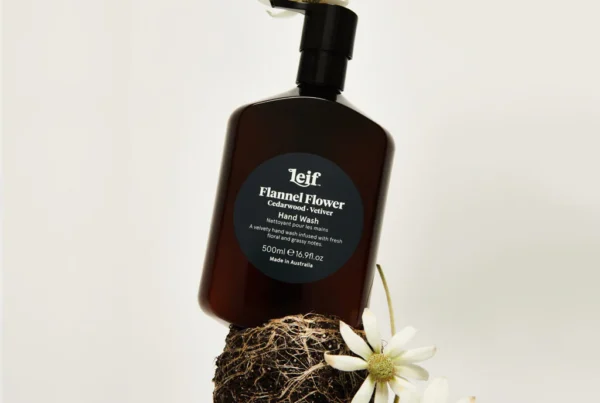Plastic pollution is one of the biggest threats to public health. Whether it’s microplastics lurking in our bodies, or plastic bits and pieces finding homes in coral reefs and oceans, the world has a serious plastic problem.
With that said, one has to wonder just where all this plastic is coming from, and which institutions are perpetuating the plastic crisis. To answer this, a global citizen science effort conducted a study that revealed that the world’s top brands produce the items responsible for a quarter of the world’s plastic pollution.
Are Coke and Pepsi The World’s Biggest Plastic Polluters?
The group Break Free From Plastic had volunteers collect over 1.8 million pieces of plastic pollution found in parks, beaches, streets, and other public spaces around the world, and note the brand and label of each littered item. The volunteers then organized 1,576 audit collections between 2018 and 2022.
For the study, the researchers analyzed the litter data, which had identified close to 910,000 visible brands. They noted that 6 multinationals were responsible for a quarter of the world’s plastic pollution.
Published in Science Advances, the research found that the Coca-Cola Company was responsible for 11% of all branded plastic waste recorded in the global survey, followed by PepsiCo with 5%. Nestlé came in third with 3% whereas Danon, and Altria — a leading producer and marketer of tobacco, cigarettes, and related products – came in at 3% and 2%, respectively.
“Time and time again from our science we see that we really need to be capping how much plastic we are producing.” Kathy Willis, marine socio-ecologist and study author
Besides their findings, the researchers noted how the leading plastic polluters were more likely to produce large amounts of single-use packaging and products designed to be consumed on the go.
Coke and Pepsi: Plastic Villains?
As alarming as the findings are, it may be a little premature to call the Coca Cola Company and PepsiCo the world’s leading plastic villains.
For one, the data pool was incredibly limited, as it appears that other countries may not have sampled as much as the United States. Especially since published data has indicated that China is the world’s largest consumer of plastics.
Also, one may argue that while the Coca-Cola Company and PepsiCo may produce a questionable amount of plastic products, they’re not necessarily the ones polluting – rather it’s the consumers of these products that have poor littering habits.
Corporations Are Trying to Be More Plastic-Conscious
“The industry likes to put the responsibility on the individual.
But we’d like to point out that it’s the brands, it’s their choice for the kinds of packaging [they use] and for embracing this throwaway model of delivering their goods. That’s what’s causing the greatest abundance of trash.” – Marcus Eriksen, study author and plastic pollution expert.
Despite the study’s shortcomings, it would be naïve to claim that brands aren’t contributing to the plastic crisis. Yet, it appears that some brands are doing their part to become more plastic-conscious.
Speaking to The Guardian, The Coca-Cola Company revealed that it had pledged to make 100% of its packaging recyclable globally by 2025. They also plan to use at least 50% recycled material in packaging by 2030.
Nestlé shared that it had reduced its virgin plastic usage by 14.9% in the last five years, and supported schemes around the world to develop waste collection and recycling schemes. The company added that it supports the creation of a global legally binding regulation on plastic pollution.
Danone revealed that, between 2018 and 2023, they reduced their plastic use by 8% equivalent to 62 000 tons, and increased the recyclability of their packaging, with 84% of their packaging being recyclable, reusable, or compostable. They also support “an ambitious and binding … UN Global Plastic Treaty, which would represent a major opportunity to unlock and accelerate progress on plastics circularity.”
Altria, on the other hand, contested the accuracy of the study’s findings, saying that upon review, they believe it to be fundamentally incorrect regarding their company. In an email, Davien Anderson, a spokesman for Altria, said,
“The study includes data from more than 80 countries, yet Altria’s cigarette company Philip Morris USA, only operates in the US.”
In response, Win Cowger, a research director at the Moore Institute for Plastic Pollution Research and the lead author of the study, said “The idea that products created by a company in a specific country only stay within the countries that create them is unsupported.”
Corporations Need To Do Better
Despite their plastic-conscious programs, it appears that brands may not be doing enough to address the plastic crisis.
Also, the researchers noted a direct relationship between a company’s production of plastic and the amount of branded plastic waste found in the environment. For instance, if the Coca-Cola Company produced 1% of the world’s plastic mass, then they were responsible for roughly 1% of the waste found in the audit. As such, this then calls for major changes in a company’s manufacturing practices
“Reduced plastic production is a primary solution to curb plastic pollution. Producer brand managers and policymakers should prioritize solutions that reduce plastic production.”
What now?
It’s imperative that we hold corporations responsible for their role in creating the plastic waste crisis. Individuals can play their part by engaging in plastic-conscious habits that will make it clear to the world’s leading conglomerates that any ills done against the planet will not be tolerated. As such, here’s an easy guide to plastic-free living:
- Stop using plastic straws and buy reusable stainless steel or glass straw.
- Use a reusable produce bag.
- Give up gum. Gum is made of synthetic rubber, aka plastic.
- Buy boxes instead of bottles.
- Buy food from bulk bins and fill in a reusable bag or container.
- Reuse containers to store leftovers or shop in bulk.
- Use a reusable bottle or mug for your beverages.
- Bring a container for take-out
- Use matches instead of disposable plastic lighters, or invest in a refillable metal lighter.
- Avoid buying frozen foods because their packaging is mostly plastic.
References
Cowger, W., et al. (2024). Global producer responsibility for plastic pollution.Sci. Adv.10,eadj8275.DOI:10.1126/sciadv.adj8275
MAIN IMAGE CREDIT: Kate Andreeshcheva/Pexels



![women [longevity live]](https://longevitylive.com/wp-content/uploads/2020/01/photo-of-women-walking-down-the-street-1116984-100x100.jpg)










